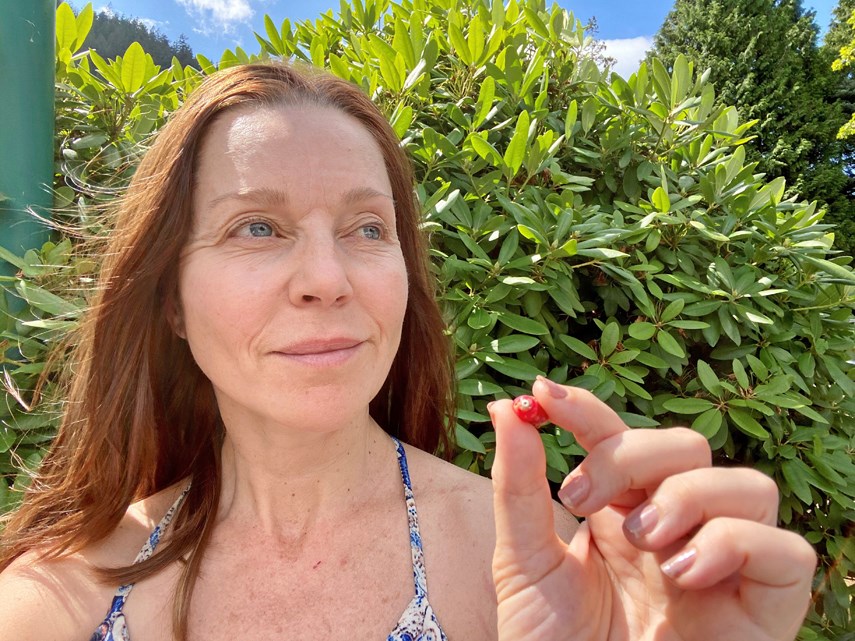Sarah-Jane Redmond didn’t realize how much she relied on lip-reading until almost everyone around her started wearing masks.
With face masks becoming more commonplace during the last several months of the COVID-19 pandemic, everyday communication has become more of a barrier for many people who are deaf or experiencing hearing loss, according to Redmond, who has lived with hearing loss almost her entire life.
“I’m lost without it,” said Redmond, an actor who lives in West Vancouver. “I think if we’re going to be wearing the masks for a long time, it’s going to be interesting.”
When Redmond was five years old, she went completely deaf for six months following a serious illness. Eventually, her hearing returned to her, but never fully.
“I grew up without hearing aids until I was about 40,” said Redmond. “I had probably 30 per cent of my hearing up until then and when I got my hearing aids I remember very clearly I was in the clinic and I was just sobbing because I realized how much I’d lost.”
She fears she’s on the verge of losing out again, ever since mask-wearing has complicated her ability to read lips and interact with her surroundings.
Even with her hearing aids in place, she’s realized that a lifetime of hearing challenges have made her particularly dependent on reading lips in order to communicate when she goes to the bank or orders a cup of coffee, said Redmond.
“I already live in a bubble with my hearing loss,” she said. “I actually didn’t know how much I relied on lip-reading until the pandemic.”
Redmond’s not the only person who relies on lip-reading who can relate.
Deaf, hard of hearing and hearing loss organizations across the country have weighed in on the face mask issue as it concerns their members in the era of novel coronavirus.
“We hear about the mask problem all the time,” said Hugh Hetherington, spokesman and treasurer for the North Shore branch of the Canadian Hard of Hearing Association. “Even people who don’t have hearing loss don’t realize how much they rely on visual cues to help them with hearing. Not all hearing situations are optimal.”
While the CHHA is essentially a support group for hard-of-hearing people that provides workshops and coping strategies for clients, Hetherington admits there’s no perfect solution when it comes to wearing face masks during the pandemic and accessibility for people living with hearing loss.
Wearing face masks in appriopriate situations is an important part of combating the virus, he said.
“We’re not saying people shouldn’t be wearing masks, but we’re talking about other options like, for instance, wearing clear face shields and also a number of people and companies have worked on developing masks with a clear section around the mouth,” said Hetherington.
The best strategy for people who rely on lip-reading might be to clearly self-identify to the person they’re interacting with who’s wearing a face mask that they’re hard of hearing, according to Hetherington.
“Once you tell people that you are hard of hearing, they will make every effort to communicate in any way they need to,” he said.
The BC Centre for Disease Control recommends wearing a face mask to help prevent the spread of COVID-19. There is currently no requirement to a wear a mask in British Columbia, however.



